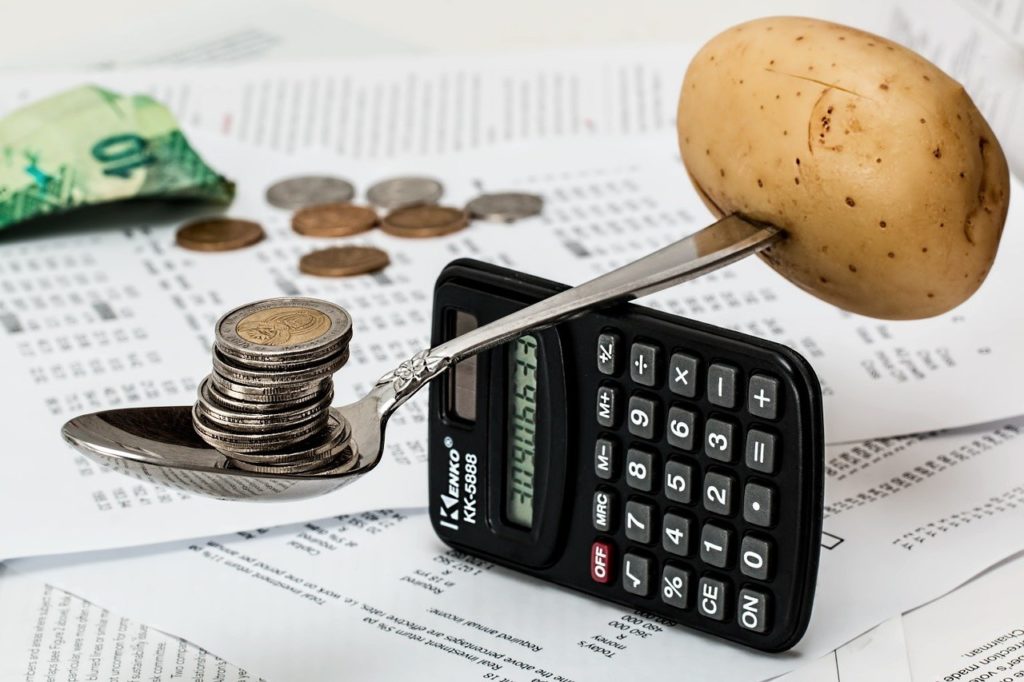10 Common Tax Deductions Musicians Should Consider

[Note: This is a modified excerpt from my upcoming book Taxes for Musicians. Subscribe if you want to get a hold of a free copy once it’s released]
People love deductions. Something to lower that tax bill sounds so sweet, especially if it helps them do what they want to do.
If you’re a musician and working you own business, whether as an independent contractor, teaching lessons, running a studio, or trying to record your own music like Billie Eilish, I’ve compiled a list of common deductions you likely want to consider as you’re putting together you tax return and the end of the year.
So here are 10 deductions to consider, with plenty of sub-grouping to make this as comprehensive as possible.
(1) Instruments
If instruments as part of your music, you can deduct their purchase, rental, repair, etc.
Maybe you play something in a band. Or maybe your students play it in a classroom. Either way, you’re good to go.
If, however, you’re buying the late Eddie Van Halen’s smashed guitar for sentimental reasons, it’s unlikely to be deductible.. I mean, yeah, potentially you could deduct it as art in your office, but let’s not get into that.
For any instrument that costs over $2,500 (like the tuba I played back in high school–the metal alone was probably a good $5k), you’ll have to deduct it following the depreciation rules. Which is something I get into way too much detail in my forthcoming book.
(2) Recording Costs
In this modern age, there’s more ways than ever to record your music. This means recording costs can cover all kinds of things. I’m sure I’m missing some of the common parts of recording, but here are the parts that came to mind.
Paying Someone Else
For years and years, the way you recorded music was to pay someone else to do it for you. They provided the studio, the software, the hardware, etc.
If you’re going this way, all of the recording related expenses you pay to the other person are deductible to you. Just make sure to get a receipt. And to send them a 1099 if the amount is over $600.
DIY – The Hardware
Screw the recording studios, right? You’re gonna do this thing on your own!
If you hope to do that and make it sound good, you’ll need the right hardware. You’ll need mics and computers at the very least. Maybe you’ll get really fancy with mixing boards or an OP-1.
All of these purchases—as long as they really are used for your business—will be deductible. Anything that costs over $2,500 will need to be depreciated (which, again, is a concept that requires at least fifty pages of it’s own to really cover).
DIY – The Software
Once you got the hardware set up, you’ll need software to record the stuff. And while you’re rockin’ the suburbs, you’ll probably want that software to fix all your crappy tracks.
Sure, you could go the free route with Audacity or Garage Band. But if you’re serious, you’ll probably have to pony up for some real software.
As a small business, you’ll get to deduct the software expenses as you pay for it. Even if you buy a multiyear license.
The Recording Studio
Even though it’s tempting to simply pull out the Blue Yeti mic, hook it up to your iPad and go, you’ll probably want to make at least a little bit of an effort setting up a home recording studio.
I’m sure you can find plenty of ways to do this with things you already have (like putting your childhood blanket fort skills to good use). If, however, you want to shell out some money for the real stuff, it’ll be deductible.
There’s a couple ways to handle this one. If you’re just temporarily throwing up some egg crates and such to muffle sound while you record, those items will be deductible.
If, however, you decide to go fancy and set up a full blown in-home recording studio, this thing will become a home office. It is still deductible, but it has special rules. Follow that link to get into some of that.
(3) Research Expense
As a musician, you’ll have to do a bit of research to make sure you’re up on the latest trends in the music world. As such, you’ll have legitimate research expenses that might look like fun to other people.
Buying Music
Any music purchases you need to make for your business would be deductible.
Some of these are obvious. If you need to get sheet music for you or your students, this would clearly be a business expense.
But what if you’re buying a record to see what the competition is doing?
That is deductible. Though it can be a little tricky. Since music is clearly ALSO something people do for fun, you need to really justify your purchases as a business expense.
For example, if you have a Spotify subscription which you use on your daily commute, while you’re cleaning your house, to help you relax, AND to research things for your music business, the IRS probably won’t let you deduct that full monthly subscription.
(SIDE NOTE: this is rarely a problem accountants have. Though I did once meet someone who would literally read the Internal Revenue Code like a novel…well, actually more like the Bible, the only other book he said he reads)
So you can deduct all kinds of music as part of your business. Just make sure you’re ready to prove it’s really for your business.
Attending Concerts
Yes, you potentially have a legitimate reason to go to a concert for your business.
Yes, that does mean you can deduct the expense of the ticket as a business expense.
Yes, you’ll have to be very careful with this deduct.
Thanks to Trump’s round of tax reform, entertainment expense is NOT deductible. And, weirdly enough, it turns out that quite a few people consider concerts to be entertainment.
So let me put forward some scenarios to consider.
Likely Deductible: You go by yourself to a Philharmonic orchestra show to get ideas on how to improve your bow work.
Likely Deductible: You go to a rap concert to figure out staging for your next set. You bring your SO, who is not part of your business, but only expense your ticket. You talk mostly about business.
Borderline: You take your girlfriend to see BTS because she really wanted to go. You legitimately believe you can learn something related to your business, but it’s a stretch. You do not deduct her ticket.
Frowned Upon: You take your boyfriend to a Justin Bieber concert. You hate Justin Bieber. Your music and performances are the antithesis of everything he embodies. You believe the only way they’re related is they could both be considered music…if you squint really hard at the stuff he sings. You deduct your boyfriend’s ticket as well as your own because going to see Justin Bieber feels like work in the worst way.
(4) Royalties to Others
Music rights are a fraught world. There’s so many things to consider before you put out that cover song on YouTube. But that’s the insane world of lawyers.
From the relatively sane world of accounting, if you have to pay royalties, you get to deduct that expense.
(5) Travel
Any sort of legitimate business travel expense is deductible.
Some of these are easy. Some of these are more complicated.
Air Travel
If you need to buy a plane ticket for yourself for a gig, the price of the ticket will be deductible.
It doesn’t just have to be performances. Any legitimate business reason to jump on that plane will make the flight deductible. It could be for a class, it could be to sign a recording contract. And so on.
IMPORTANT NOTE OF GOOD NEWS: If you have a legitimate business reason to go somewhere, and then stay a few extra days for personal reasons, the full amount of the plane ticket is still deductible. This would be like doing a performance in Orlando then staying a couple days to go to Disney World: you had to pay for the plane ticket anyway, so you don’t have to break out the cost between business and personal.
BONUS: Air Travel for Family NOT DEDUCTIBLE
You may want to or need to bring family along on your trip. Unless they are a legitimate part of your business and have a legitimate reason to travel along with you, their ticket will not be deductible.
Taxis, Uber, Etc.
If you ever need to use a taxi or call up an Uber or something similar for business, that will be deductible.
Note that commuting is NOT deductible. This would only be for trips separate from that normal commute from your home to wherever you normally work.
Driving
If you drive yourself somewhere for business, the expense of the drive is deductible. There are a few different ways to handle this, though, which I discuss in a separate chapter in my book.
As noted above, the daily commute would NOT be deductible
Other Public Transportation
Trains, light rails, buses, etc. If you take any sort of transportation for business, the expense is deductible.
And again, the daily commute is NOT deductible.
Hotels
If you are traveling to another city for business and need to stay overnight, the cost of the hotel will be a deductible business expense.
IMPORTANT NOTE: If you decide to stay a few extra days for personal reasons, the ADDITIONAL cost of the hotel will NOT be deductible.
Going back to the example we used in the air travel, let’s say your in Orlando for a gig. You need a hotel for one night for this. You stay 3 extra nights to go to the Magic Kingdom. Only that one performance night would be deductible.
BONUS: Hotels and Family
Sometimes you want to bring family along with you on your trips.
Their plain ticket may not be deductible, but, as long as it doesn’t cost any more for them to stay in your room, their hotel room would be.
Yes, that means any ADDITIONAL cost for the hotel room for them would be non-deductible.
For example, if I pay $300 for a room in New York City to meet with an agent, that would be deductible. If my spouse stays in the room with me for no extra cost, the full $300 is still deductible.
If, however, it costs an extra $50 to have my spouse in the room with me, that extra $50 would technically not be deductible. Though unless the hotel actually provides a breakout of the cost of more people, there’s really no way of knowing what the additional cost actually would be.
Meals
Meals are tricky. They are deductible if its for a legitimate business purposes (buying food for a client to have a business chat, buying food while traveling). But they’re only 50% deductible.
I go into more of this in another chapter in my book.
(6) Rental For Performances
If you’re paying rental costs to put on a show, then you get to deduct all of those costs. The rental for the space, the lights, the sound equipment, and so on.
(7) Clothes & Costumes
Here’s another tricky one…what can you deduct for your professional clothing?
Well, if you could reasonably wear your outfit at some other (ordinary) time in your life, then it is not deductible.
For example, if you buy a suit or a dress for a recital, the IRS will argue that you could also wear that suit or dress at a party or networking event, so no deduction for you.
Is this treatment sexist, considering that men can wear the same suit to every concert but women are expected to have a different dress every time? Could be. Feel free to reach out to your Representative to fix that bug.
What about things you WOULDN’T wear anywhere else?
Yep, that’s deductible.
ABBA famously wore outlandish costumes on stage for this very reason.
It probably partially explains the Aquabats!
Unfortunately, if you’re performing in the Met, they’ll probably look down on you wearing something you got from your local Halloween store because “it’s tax deductible.”
(8) Professional Services
It’s great to do things on your own, but you’ll likely need some professional support from time to time. Business managers, lawyers, accountants and so on.
The amount you pay will be deductible, as long as it’s for your business.
And if you pay over $600, don’t forget the 1099 requirement.
(9) Advertising
It’s important to get the word out there. Advertising—whether it’s buying Facebook ads, TV Spots, or web hosting to make a unique website—is deductible
(10) Note on Unrelated Expenses
I’ve used the word “legitimate” in this chapter like I’m at a paternity testing clinic. That’s because your expenses really need to be a legitimate business expenses to be deductible.
Do you need to pay that money to further your business venture? If yes, in general, you can deduct it.
Are you buying that item just for fun with the hope to run it through your business and let Uncle Sam subsidize it? Then the IRS likely won’t allow it.
Just watch what you buy and why you buy it. Don’t go crazy with weird schemes that your uncle read about on Facebook. Otherwise, you could end up getting the kiss of death and have your whole business moved to a hobby. Which is really, really bad. I talk about that more in my book






[…] My Latest: I’ve been working mostly diligently to get my next book out, “Taxes for Musicians.” Rather than write a whole separate post, I just copied and pasted (with some minor modifications) the current draft of one of my chapters: 10 Common Tax Deductions for Musicians. […]